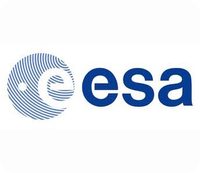Spotlight
ESA Member States Increase Funding
Written by: developer
 Despite growing economic woes in Europe, 14 of the European Space Agency’s (ESA) soon-to-be 19 member nations will increase their contributions for 2011.
Despite growing economic woes in Europe, 14 of the European Space Agency’s (ESA) soon-to-be 19 member nations will increase their contributions for 2011.
Last month, Romania took the first step to becoming the 19th ESA Member State by signing an Accession Agreement to the ESA Convention. Later this year, the Government of Romania will conclude the ratification process and once the ratification instrument is deposited with the Government of France, Romania will become an ESA Member State.
In addition to contributions from its Member States, ESA receives payments from the the 27-nation European Commission (EC) for programs managed by ESA but sponsored, in whole or in part, by the EC. These include the Galileo satellite navigation system and the Global Monitoring for Environment and Security (GMES) Earth observation program. EC payments to ESA in 2011 are expected to total about 778 million euros($1 billion).
Another 233 million euros ($312 million) comes from organizations for which ESA performs work and 7.9 million euros ($10 million) comes from nations with cooperating-state agreements with ESA.
Total ESA funding for 2011 will be 3.99 billion euros ($5.5 billion), a 6.7 percent increase over 2010.
Earth observation accounts for 21 percent of ESA’s budget, up from 19 percent in 2010; navigation accounts for 16.7 percent; and launch vehicles are 15.3 percent.
According to ESA, member-to-be Romania has a long aerospace tradition and has contributed to more than 30 scientific and technological space missions. During the 1970s and 1980s, Romania was an active member of the Soviet Union’s Interkosmos programme. In 1992, Romania was one of the first Eastern European countries to sign a Cooperation Agreement in the field of the peaceful use of outer space with ESA, paving the way for Romanian participation in several research projects with other European countries. Cooperation between ESA and Romania was strengthened further in October 1999 with the signing of a five-year Framework Cooperation Agreement, and the signature of the European Cooperating State Agreement in 2006.
Romania has participated in several ESA missions, including Cluster, Herschel, Planck, SOHO and Gaia with co-investigators, and in Earth Observation activities (EDUSPACE software), microgravity and exploration (SURE) and technology activities (the IAP telemedicine project).
This article is part of Space Watch: February 2011 (Volume: 10, Issue: 2).


